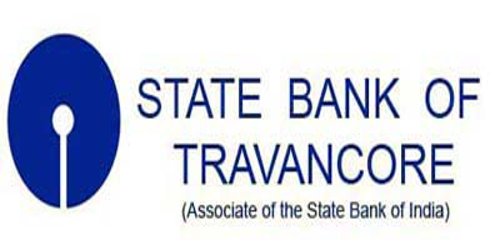POLICY ON LOAN CLASSIFICATION AND PROVISIONING
The process of gradually upgrading the policies on loan classification and provisioning to the international level is going on, Measures have been taken to strengthen the credit discipline and the process of classification has been simplified. The following revised policies on loan classification and provisioning has been issued amending the previous circulars in this regard:
1. Categories of Loans:
All loans and advances will be grouped into 4(four) categories for the purpose of classification, namely-
Continuous Loan: The loan Accounts in which transactions may be made within certain limit and have an expiry date for full adjustment will be treated as Continuous Loans. Examples are: CC, OD etc.
Demand Loan: The loans that become repayable on demand by the bank will be treated as Demand Loans. If any contingent or any other liabilities are turned to forced loans (i.e. without any prior approval as regular loan) those too will be treated as Demand Loans. Such as: Forced LIM, PAD, FBP, and IBP etc.
Fixed Term Loan: The loans, which are repayable within a specific time period under a specific repayment schedule, will be treated as Fixed Term Loans.
Short-term Agricultural Credit: This will include the short-term credits as listed under the Annual Credit Program issued by the Agricultural Credit Department of Bangladesh Bank. Credits in the agricultural sector repayable within less than 12 months will also be included herein. Short-term Micro-Credits will include any micro-credits for less than Tk.25,000/= and repayable within less than 12 months, be those termed in any names such as Non-agricultural credit, Self-reliant Credit, Weaver’s Credit or Bank’s individual project credit.
2. Basis for Loan Classification:
Objective Criteria:
Any Continuous Loan if not repaid/renewed within the fixed expiry date for repayment will be treated as past due/overdue from the following day of the expiry date. This loan will be classified as Sub-standard if it remains past due/overdue for 6 months or beyond but less than 9 months, as `Doubtful’ if for 9 months or beyond but less than 12 months and as `Bad-Debt’ if for 12months or beyond.
Any Demand Loan if not repaid/rescheduled within the fixed expiry date for repayment will be treated as past due/overdue from the following day of the expiry date. This Loan will be classified as Sub-standard if it remains past due/overdue for 6 months or beyond but not over 9 months from the date of claim by the bank or from the date of creation of the forced loan; likewise the loan will be classified as “Doubtful’ and Bad/loss if remains past due/overdue for 9 months or beyond but not over 12 months and for 12 months and beyond respectively.
In case any installment(s) or part of installment(s) of a Fixed Term Loan is not repaid within the due date, the amount of unpaid installment(s) will be termed as `defaulted installment’-
In case of Fixed Term Loans, which are repayable within maximum five years of time: –
- If the amount of `defaulted installment’ is equal to or more than the amount of installment(s) due within 6 months, the entire loan will be classified as “Sub-standard”.
- If the amount of ‘defaulted installment’ is equal to or more than the amount of installment(s) due within 12 months, the entire loan will be classified as ”Doubtful.
- If the amount of ‘defaulted installment’ is equal to or more than the amount of installment(s) due within 18 months, the entire loan will be classified as ”Bad -Loss.”
In case of Fixed Term Loans, which are repayable in more than five years of time: –
- If the amount of `defaulted installment’ is equal to or more than the amount of installment(s) due within 12 months, the entire loan will be classified as ‘Sub-standard.’
- If the amount of `defaulted installment ‘ is equal to or more than the amount of installment(s) due within 18 months, the entire loan will be classified as ‘Doubtful’.
- If the amount of ‘defaulted installment ‘is equal to or more than the amount of installment(s) due within 24 months, the entire loan will be classified as ‘Bad-Debt’.
Explanation:
If any Fixed Term Loan is repayable at monthly installment, the amount of installment(s) due within 6 months will be equal to the amount of summation of 6 monthly installments. Similarly, if repayable at quarterly installment, the amount of installment(s) due within 6 months will be equal to the amount of summation of 2 quarterly installments.
The Short-term Agricultural and Micro – Credit will be considered irregular if not repaid within the due date as stipulated in the loan agreement. If the said irregular status continues, the credit will be classified as ‘Substandard ‘ after a period of 12 months, as ‘Doubtful’ after a period of 36 months and as ‘Bad Debt’ after a period of 60 months from the stipulated due date as per loan agreement.
All unclassified loans other than Special Mention Account (SMA) will be treated as Standard.
A Continuous credit, Demand loan or a Term Loan which will remain overdue for a period of 90 days or more, will be put into the “Special Mention Account (SMA)”. This will help banks to look at accounts with potential problems in a focused manner and it will capture early warning signals for accounts showing first sign of weakness. Loans in the “Special Mention Account (SMA)” will have to be reported to the Credit Information Bureau (CIB) of Bangladesh Bank. However, it is reiterated that loans in the “Special Mention Account” will not be treated as defaulted loan for the purpose of section 27KaKa(3) of the Bank Company Act, 1991.
(B). Qualitative Judgment:
- If any uncertainty or doubt arises in respect of recovery of any Continuous Loan, Demand Loan or Fixed Term Loan, the same will have to be classified on the basis of qualitative judgment be it classifiable or not on the basis of objective criteria.
- If any situational changes occur in the stipulations in terms of which the loan was extended or if the capital of the borrower is impaired due to adverse conditions or if the value of the securities decreases or if the recovery of the loan becomes uncertain due to any other unfavorable situation, the loan will have to be classified on the basis of qualitative judgment.
- Besides, if any loan is illogically or repeatedly re-scheduled or the norms of re-scheduling are violated or instances of (propensity to) frequently exceeding the loan-limit are noticed or legal action is lodged for recovery of the loan or the loan is extended without the approval of the proper authority, it will have to be classified on the basis of qualitative judgment.
- Despite the probability of any loan’s being affected due to the reasons stated above or for any other reasons, if there exists any hope for change of the existing condition by resorting to proper steps, the loan, on the basis of qualitative judgment, will be classified as ‘Sub-standard ‘. But even if after resorting to proper steps, there exists no certainty of total recovery of the loan, it will be classified as ‘ Doubtful ‘ and even after exerting the all-out effort, there exists no chance of recovery, it will be classified as ‘ Bad-Debt ‘ on the basis of qualitative judgment.
The concerned bank will classify on the basis of qualitative judgment and can declassify the loans if qualitative improvement does occur.
But if any loan is classified by the Inspection Team of Bangladesh Bank, the same can be declassified with the approval of the Board of Directors of the bank. However, before placing such case to the Board, the CEO and concerned branch manager shall have to certify that the conditions for declassification have been fulfilled.
3. Accounting of the interest of classified loans:
- If any loan or advance is classified as ‘Sub-standard’ and ‘Doubtful’, interest accrued on such loan will be credited to Interest Suspense Account, instead of crediting the same to Income Account. In case of rescheduled loans the unrealized interest, if any, will be credited to Interest Suspense Account, instead of crediting the same to Income Account.
- As soon as any loan or advance is classified as ‘Bad Debt’, charging of interest in the same account will cease. In case of filing a law-suit for recovery of such loan, interest for the period till filing of the suit can be charged in the loan account in order to file the same for the amount of principal plus interest. But interest thus charged in the loan account has to be preserved in the ‘Interest Suspense ‘ account. If any interest is charged in any ‘Bad-Debt’ account for any other special reason, the same will be preserved in the ‘Interest Suspense’ account.
- If classified loan or part of it is recovered i.e., real deposit is effected in the loan account, first the interest charged and not charged is to be recovered from the said deposit and the principal to be adjusted afterwards.
- Interest accrued on “Special Mention Account (SMA)” will be credited to Interest Suspense Account, instead of crediting the same to Income Account.
Category wise Loans & Advances at 31December, 2010
Continuous Loan Tk. 21,61,68,64,385
Demand Loan Tk. 14,41,95,03,613
Fixed Term Loan Tk. 26,92,41,96,740
Short-term Agricultural Credit Tk. 26,95,76,890
Net Loans & Advances at 31 December, 2010
Gross Loans and Advances Tk. 63,23,01,41,628
Less: Non-performing loans and advances Tk. 1,42,52,80,000
Less: Interest suspense Tk. 26,54,48,405
Net loans and advances Tk. 61,53,94,13,223
Classification of Loans and Advances
Unclassified Standard (including staff loans) Tk. 60,63,41,71,628
Unclassified Special Mention Account Tk. 1,17,06,90,000
Sub-standard Tk. 14,34,04,000
Doubtful Tk. 6,08,31,000
Bad/Loss Tk. 1,22,10,45,000
Total Tk. 63,23,01,41,628
4. Maintenance of provision:
- Banks will be required to maintain General Provision in the following way:
- @ 1% against all unclassified loans (other than- (i) loans under Consumer Financing, (ii) loans against shares etc. and (iii) Special Mention Account.)
- @ 5% on the unclassified amount for Consumer Financing whereas it has to be maintained @ 2% on the unclassified amount for (i) Housing Finance and (ii) Loans for Professionals to set up business under Consumer Financing Scheme.
- @ 2% against unclassified amount of any kind of funded loan disbursed to stock dealers enlisted with Stock Exchange, separate subsidiary company established by a bank company for dealing business in share brokerage and merchant banking and any other company or institution or individual for dealing such business.
- @ 5% on the outstanding amount of loans kept in the ‘Special Mention Account’ after netting off the amount of Interest Suspense.
Banks will maintain provision at the following rates in respect of classified Continuous, Demand and Fixed Term Loans:
- Sub-standard 20%
- Doubtful 50%
- Bad/Loss 100%
Provision in respect of Short-term Agricultural and Micro-Credits is to be maintained at the following rates:
All credits except ‘Bad/Loss'(i.e. ‘Doubtful’, ‘Sub-standard’, irregular and regular credit accounts): 5%
‘Bad/Loss’: 100%
- Banks are required to maintain general provision against Off-balance sheet exposures in the following manner:
- @ 0.5% provision effective from December 31, 2007 and
- @ 1% provision effective from December 31, 2008 .
5. Base for Provision:
Provision will be maintained at the above rate on the balance to be ascertained by deducting the amount of ‘Interest Suspense’ and value of eligible securities from the outstanding balance of classified accounts.
6. Eligible Securities:
In the definition of ‘Eligible Securities’ as mentioned in the above paragraph the following securities will be included as eligible securities in determining base for provision:
- 100% of deposit under lien against the loan,
- 100% of the value of government bond/savings certificate under lien,
- 100% of the value of guarantee given by Government or Bangladesh Bank,
- 100% of the market value of gold or gold ornaments pledged with the bank,
- 50% of the market value of easily marketable commodities kept under control of the bank,
- Maximum 50% of the market value of land and building mortgaged with the bank,
- 50% of the average market value for last 06 months or 50% of the face value, whichever is less, of the shares traded in stock exchange.
7. Determination of Market Value of Eligible Securities:
In determining market value of easily marketable commodities, land and building, banks are advised to follow the instructions mentioned below:
- Easily marketable goods will mean pledged, easily encashable/saleable goods that remain under full control of the bank. However, while the concerned bank branch official will conduct periodic inspection to verify as to whether issues such as the suitability of goods for use, expiry period, appropriateness of documentary evidences, up to date insurance cover, same will have to be assessed by the professional assessor from time to time.
- For land and building, banks will have to ensure whether title documents are in order and concerned land and building will have to be valued by the professional valuation firm along with completion of proper documentation in favour of the bank. In absence of professional valuation firm, certificate in favour of such valuation will have to be collected from the specialized engineer. Nevertheless, temporary houses including tin-shed structure shall not be shown as building.
- In order to facilitate the on-site inspection by Departments of Bank Inspection of Bangladesh Bank, banks are also advised to maintain complete statement of eligible securities on a separate sheet in the concerned loan file. Information such as description of eligible securities, their assessment by recognized firm, marketability of the commodity, control of the bank, and reasons for considering eligible securities etc. will have to be included in that sheet.
- In terms of the above policies, the banks will conduct their classification- activities on quarterly basis. Detailed statements in respect of classification, provision and ‘Interest suspense’ accounts will have to be submitted to Bangladesh Bank within 30 days from the reference date.
Loan Provisioning in NCC Bank Ltd at 31December, 2010
a) Movement in specific provision on classified loans and advances
Opening balance Tk. 72,02,24,000
Fully provided debt written off (Tk. 37,88,83,352)
Add: Recoveries of amounts previously written off Tk. 9,76,96,106
Net charged to Profit & Loss Account Tk. 39,16,92,246
Provision held at the end of the period Tk. 74,28,02,000
b) Movement in general provision on unclassified loans and advances
Opening balance Tk. 50,96,72,000
Add: Provision made for the year/ net charge in P&L acc. Tk. 23,06,41,000
Tk. 74,03,13,000
Total Provision for Loans and Advances (a+b) Tk.1,48,31,15,000
POLICY FOR RESCHEDULING OF LOANS
Experience shows that the existing system of loan rescheduling has created impediments in the way of realizing defaulted loans. Specially, a tendency has been observed among the defaulted borrowers to avail the opportunity of loan rescheduling again and again without any definite business rationale. Some confusions have also cropped up relating to the condition of cash deposit as down payment for loan rescheduling. After careful and overall review of the aforesaid problems and in suppression of all previous instructions 27the following detailed policies for rescheduling of loans are being issued for compliance by banks:
1. Guidelines for Consideration of Loan Rescheduling Applications:
While considering loan rescheduling application the banks shall follow the under mentioned guidelines:
- When a borrower asks for rescheduling of loans the banks shall examine the causes as to why the loan has become non-performing. If it is found from such review that the borrower has diverted the funds elsewhere or the borrower is a habitual loan defaulter the bank shall not consider the application for loan rescheduling. Instead, the bank shall take/continue all legal steps for recovery of the loans.
- At the time of considering loan rescheduling proposal bank must assess the borrower’s overall repayment capacity taking into account the borrower’s liability position with other banks.
- In order to ensure whether the borrower would be able to repay the rescheduled installments/existing liability the bank shall review the borrower’s cash flow statement, audited balance sheet, income statement and other financial statements.
- Bank officers should ensure, if required, by spot inspection of the borrower’s company/business place, that the concerned company/business enterprise will be able to generate surplus to repay the rescheduled liability. Such inspection reports should be preserved by the banks.
- If a bank is satisfied after due diligence mentioned above that the borrower will be able to repay, the loan may be rescheduled. Otherwise, bank shall take all legal steps to realize the loan, make necessary provision and take measures to write-off.
- The rescheduling shall be for a minimum reasonable period of time.
- At the time of placing the rescheduling proposal before the Board of Directors the Bank shall apprise the Board in details, what would be implications of such loan rescheduling on the income and other areas of the bank.
2. Rescheduling of Term Loans:
The loans which are repayable within a specific time period under a prescribed repayment schedule are treated as Term Loans. For rescheduling such loans following policies shall, henceforth, be followed:
Application for first rescheduling will be considered only after cash payment of at least 15% of the overdue installments or 10% of the total outstanding amount of loan, whichever, is less;
Rescheduling application for the second time will be considered after cash payment of minimum 30% of the overdue installments or 20% of the total outstanding amount of loan, whichever, is less;
Application for rescheduling for more than two times will be considered after cash payment of minimum 50% of the overdue installments or 30% of the total outstanding amount of loan, whichever is less;
Explanation: If any loan is rescheduled once before issuance of this policy the conditions set forth in this circular for second rescheduling shall be applicable for rescheduling of such loans. Likewise, the terms for 3rd rescheduling as per this circular shall be applicable for rescheduling of any loan which has already been rescheduled twice.
3. Rescheduling of Demand and Continuous Loan:
The loans which can be transacted without any specific repayment schedule but have an expiry date for repayment and a limit are treated as Continuous Loan. In addition, the loans which become repayable after those are claimed by the bank, are treated as Demand Loans. If any contingent or any other liabilities are turned to forced loan (i.e. without any prior approval as regular loan) those also are treated as Demand Loans. For rescheduling of Demand and Continuous Loans the rates of down payment, depending on the loan amount, shall be as under:
| Amount of Overdue Loan | Rates of Down payment |
| Up to Tk.1.00 (one) crore | 15% |
| Tk. 1.00(one) crore to Tk. 5.00 (five) crore | 10% (but not less than Tk.15.00 lac) |
| Tk. 5.00(five) crore and above | 5% (but not less than Tk.50.00 lac) |
If any Continuous or Demand Loan is rescheduled by restructuring/converting partly or wholly into Term Loan and repayment installments have been fixed, application for rescheduling such loans shall be considered on cash payment of minimum 30% of the overdue installments or 20% of the total outstanding amount of loan, whichever is less. For subsequent rescheduling minimum 50% of the overdue installments or 30% of the total outstanding amount of loan amount shall have to be deposited in cash.
4. Other Terms and Conditions of Rescheduling:
The Borrowers whose credit facility has been rescheduled will get new loan facility subject to fulfillment of the following conditions:-
- The defaulting borrower who has availed interest waiver must settle at least 15% of the compromise amount (excluding the down payment on rescheduling as per present guidelines) to avail any further credit facility from any Bank.
- In case of borrowing from other Banks, the same rule will be applicable, i.e. the borrower will have to settle at least 15% of compromise amount (excluding the down payment on rescheduling as per present guidelines), then, will be allowed to take regular facility from other Banks subject to the submission of NOC (No Objection Certificate) from the rescheduling bank.
- Export borrowers may be granted further credit facility (after being identified as not a willful defaulter), if required, subject to settle at least 7.5% of the compromise amount (excluding the down payment on rescheduling as per present guidelines) being paid.
- If any such issue is already there (such fresh facility has already been allowed after allowing waiver), the same will not fall under purview of this circular.
- Information on the loan accounts rescheduled shall be reported to the Credit Information Bureau (CIB) of Bangladesh Bank. While reporting to the CIB, such rescheduled loans/advances may be shown as RS 1 for first rescheduling, RS 2 for second and so on. Interest waivers given to the entity should be mentioned as RSIW.
Where the amount equal to minimum twice the amount of principal loan disbursed has been repaid till the date of issuance of this policy, the instructions contained in this circular shall not be mandatory for rescheduling of such loan for 1(one) year from the date of this circular. For rescheduling as above no prior approval of Bangladesh Bank will be required; however, prior approval of Bangladesh Bank shall have to be obtained if the loan is related to the director/ex-directors of a Bank Company.
Compliance by NCC Bank Ltd
NCC Bank Ltd. strictly follows above policy to reschedule the nonperforming Loans and Advances. At the time of considering loan rescheduling proposal bank must assess the borrower’s overall repayment capacity taking into account the borrower’s liability position with other banks. The rescheduling shall be for a minimum reasonable period of time. Information on the loan accounts rescheduled shall be reported to the Credit Information Bureau (CIB) of Bangladesh Bank.
POLICY FOR LOAN WRITE OFF
In course of conducting credit operations by banks the quality of a portion of their loan portfolio, in many cases, deteriorates and uncertainty arises in realizing such loans and advances. These loans are adversely classified as per existing rules and necessary provision has to be made against such loans. Writing off bad loans having adequate provision is an internationally accepted normal phenomenon in banking business. Owing to the reluctance of banks in Bangladesh in resorting to this system their balance sheets are becoming unnecessarily and artificially inflated. In order to avoid possible legal complications in retaining the claims of the banks over the loans written off section 28 ka has been incorporated in 2001 in the Bank Company Act, 1991. In this context the following policies for writing off loans are being issued for compliance by banks:
- Banks may, at any time, write off loans classified as bad/loss. Those loans which have been classified as bad/loss for the last five years and for which 100% provisions have been kept should be written off without delay. After issuance of this circular the process of writing off all other loans classified as bad/loss should be started immediately. Under the process the oldest bad/loss classified loans should be considered first for written off.
- Banks may write off loans by debit to their current year’s income account where 100% provision kept is not found adequate for writing off such loans.
- All out efforts should be continued for realizing written off loans. Cases must be filed in the court of law before writing off any loan for which no legal action has been initiated earlier.
- A separate “Debt Collection Unit” should be set up in the bank for recovery of written off loans.
- In order to accelerate the settlement of law suits filed against the written off loans or to realize the receivable written off loans any agency outside the bank can be engaged.
- A separate ledger must be maintained for written off loans and in the Annual Report/Balance Sheet of banks there must be a separate “notes to the accounts” containing amount of cumulative and current year’s loan written off.
- In spite of writing off the loans the concerned borrower shall be identified as defaulter as usual. Like other loans and advances, the writing off loans and advances shall be reported to the Credit Information Bureau (CIB) of Bangladesh Bank.
- Prior approval of Bangladesh Bank shall have to be obtained in case of writing off loans sanctioned to the director or ex-director of the bank or loans sanctioned during the tenure of his directorship in the bank to the enterprise in which the concerned director has interest.
















